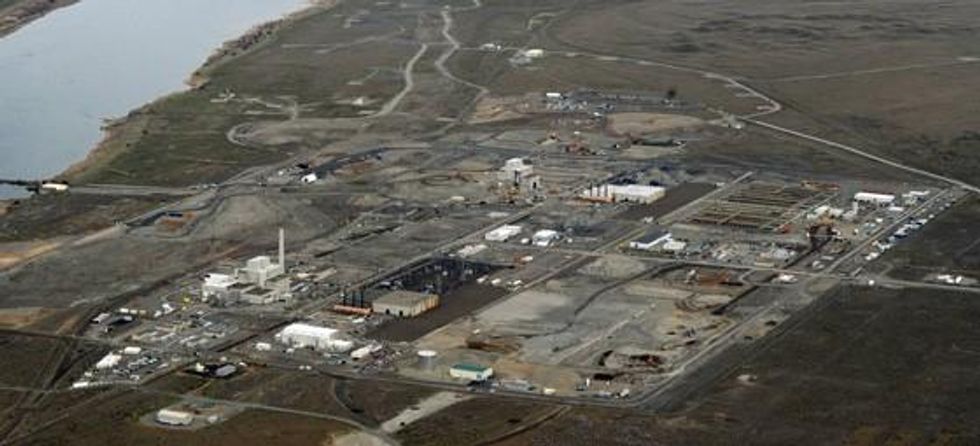Six aging, single-walled underground storage tanks are leaking radioactive waste, threatening groundwater below the Hanford nuclear site, Washington state Governor Jay Inslee announced on Friday afternoon.
The seeping waste adds to decades of soil contamination caused by leaking storage tanks at Hanford in the past and threatens to further taint groundwater below the Columbia River, officials said.
The newly disclosed leaking tanks were revealed by Inslee just a week after the U.S. Energy Department disclosed that radioactive waste was found to be escaping from only one tank at the Hanford Nuclear Reservation.
"This is disturbing news for all Washingtonians," Inslee said in a statement released by his office. "This certainly raises serious questions about the integrity of all 149 single-shell tanks with radioactive liquid and sludge at Hanford... We received very disturbing news today. I think that we are going to have a course of new action and that will be vigorously pursued in the next several weeks."
The Energy Department issued a brief statement acknowledging that six waste tanks were found to be leaking and adding that there was no "immediate" public health risk.
The Energy Department said a week ago that declining liquid levels in just one tank at Hanford showed it was leaking at a rate of 150 to 300 gallons per year.
The US government built Hanford during World War II as part of the Manhattan Project to build the nuclear bomb. The site produced plutonium for the bomb dropped on the Japanese city Nagasaki and continued producing plutonium for the US nuclear arsenal for years.




